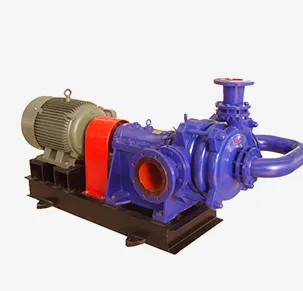English
- Afrikaans
- Albanian
- Amharic
- Arabic
- Armenian
- Azerbaijani
- Basque
- Belarusian
- Bengali
- Bosnian
- Bulgarian
- Catalan
- Cebuano
- Corsican
- Croatian
- Czech
- Danish
- Dutch
- English
- Esperanto
- Estonian
- Finnish
- French
- Frisian
- Galician
- Georgian
- German
- Greek
- Gujarati
- Haitian Creole
- hausa
- hawaiian
- Hebrew
- Hindi
- Miao
- Hungarian
- Icelandic
- igbo
- Indonesian
- irish
- Italian
- Japanese
- Javanese
- Kannada
- kazakh
- Khmer
- Rwandese
- Korean
- Kurdish
- Kyrgyz
- Lao
- Latin
- Latvian
- Lithuanian
- Luxembourgish
- Macedonian
- Malgashi
- Malay
- Malayalam
- Maltese
- Maori
- Marathi
- Mongolian
- Myanmar
- Nepali
- Norwegian
- Norwegian
- Occitan
- Pashto
- Persian
- Polish
- Portuguese
- Punjabi
- Romanian
- Russian
- Samoan
- Scottish Gaelic
- Serbian
- Sesotho
- Shona
- Sindhi
- Sinhala
- Slovak
- Slovenian
- Somali
- Spanish
- Sundanese
- Swahili
- Swedish
- Tagalog
- Tajik
- Tamil
- Tatar
- Telugu
- Thai
- Turkish
- Turkmen
- Ukrainian
- Urdu
- Uighur
- Uzbek
- Vietnamese
- Welsh
- Bantu
- Yiddish
- Yoruba
- Zulu
Telephone: +86 13120555503
Email: frank@cypump.com
Dec . 13, 2024 00:45 Back to list
Versatile Slurry Pump Designed for Seamless Operation in Various Applications
Understanding Interchangeable Slurry Pumps A Comprehensive Overview
Slurry pumps play a critical role in various industrial processes where the transportation of abrasive slurries is required. Among the types of slurry pumps, interchangeable slurry pumps have garnered significant attention due to their versatility and efficiency. This article delves into the features, advantages, applications, and essential considerations when selecting an interchangeable slurry pump.
What are Interchangeable Slurry Pumps?
Interchangeable slurry pumps are designed to handle mixtures of liquids and solid particles with varying viscosities and sizes. Unlike standard pumps, interchangeable models can be easily adapted or configured to accommodate different materials or service requirements without the need for extensive modifications. This adaptability makes them a valuable asset in industries where operational parameters frequently change.
Key Features of Interchangeable Slurry Pumps
1. Modular Design The modular design of interchangeable slurry pumps allows components such as impellers, volutes, and wear parts to be swapped out with ease. This flexibility ensures that the pump can be optimized for different types of slurries, enhancing its performance for specific applications.
2. Robust Construction Built to withstand the harsh conditions often found in slurry handling, these pumps typically feature heavy-duty materials like high-chrome alloys, rubber, or polyurethane. This durability extends the life of the pump and minimizes maintenance costs.
3. Efficient Performance Interchangeable slurry pumps are engineered for high efficiency, reducing energy consumption while maintaining excellent flow rates. This efficiency not only reduces operational costs but also helps companies meet their sustainability goals.
4. Versatility One of the main advantages of interchangeable slurry pumps is their ability to handle different slurries, whether they are viscous, abrasive, or corrosive. This versatility allows operators to manage multiple products using a single pump type, streamlining operations and reducing equipment inventory.
Applications of Interchangeable Slurry Pumps
Interchangeable slurry pumps find applications across various industries
interchangeable slurry pump

- Mining and Minerals Processing These pumps are commonly used to transport abrasive slurries that contain minerals, ores, and tailings
. The ability to quickly change components ensures optimal performance in different mining scenarios.- Wastewater Treatment In wastewater treatment plants, interchangeable slurry pumps can handle a range of fluids with varying solid content. They can be adjusted easily to manage fluctuating conditions without needing replacement.
- Pulp and Paper Industry The ability to handle thick slurries of pulp makes interchangeable slurry pumps ideal for the pulp and paper industry, facilitating efficient material transport during production processes.
- Construction In construction projects, these pumps are effective in dewatering applications and handling cement slurries, showing their adaptability in various environments.
Considerations When Selecting an Interchangeable Slurry Pump
Choosing the right interchangeable slurry pump requires careful consideration of several factors
1. Slurry Composition Understand the specific characteristics of the slurry, including particle size, concentration, and viscosity. Select a pump that can handle these variables effectively.
2. Pump Size and Capacity The pump should be appropriately sized for the application to ensure efficient operation without overloading the system.
3. Material of Construction Depending on the corrosiveness and abrasiveness of the slurry, choose materials that will resist wear and deterioration.
4. Maintenance and Serviceability Opt for pumps that offer easy access to components for maintenance and repair, minimizing downtime in operations.
In conclusion, interchangeable slurry pumps are vital assets in numerous industries due to their versatility, robust design, and efficient performance. Understanding the selection process and application context is essential for leveraging their benefits effectively. Emphasizing proper maintenance and operation will ensure these pumps continue to perform optimally in demanding environments, ultimately contributing to the success of various industrial processes.
-
ISG Series Vertical Pipeline Pump - Chi Yuan Pumps Co., LTD.|Advanced Hydraulic Design&Energy-Efficient Solutions
NewsJul.30,2025
-
ISG Series Vertical Pipeline Pump - Chi Yuan Pumps Co., LTD.
NewsJul.30,2025
-
ISG Series Vertical Pipeline Pump - Chi Yuan Pumps Co., LTD.|energy-efficient fluid handling&industrial durability
NewsJul.30,2025
-
ISG Series Vertical Pipeline Pump - Chi Yuan Pumps | Advanced Engineering&Industrial Efficiency
NewsJul.30,2025
-
ISG Series Pipeline Pump - Chi Yuan Pumps | High Efficiency, Energy Saving
NewsJul.30,2025
-
ISG Series Vertical Pipeline Pump-Chi Yuan Pumps|High Efficiency&Reliable Performance
NewsJul.29,2025










